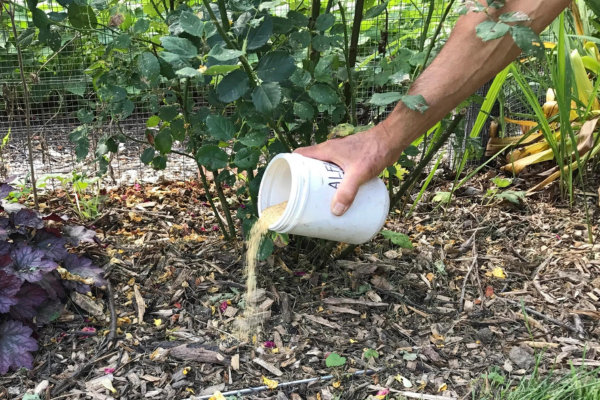Phosphorus plays a critical role in plant health and development, influencing everything from energy transfer for growth to the synthesis of key organic compounds necessary for plant maturity. The presence of adequate phosphorus is essential for the general health and vigor of all plants. It is involved in several key plant functions, including energy transfer, photosynthesis, and nutrient movement within the plant. Phosphorus deficiencies can lead to stunted growth, delayed maturation, and poor yield quality.
The importance of organic fertilizers in sustainable agriculture cannot be overstated. Unlike their synthetic counterparts, organic phosphorus fertilizers are derived from natural sources, which can include bone meal, rock phosphate, and composted plant residues. These sources not only supply phosphorus but also contribute to the organic matter content of the soil, enhancing its overall health and sustainability. Dr. Jane Goodall, an ethologist and conservationist, emphasizes the benefits of returning to organic farming methods to restore soil health and biodiversity. She notes that “organic farming practices can increase farm productivity and repair the damage done by industrial agriculture” to the soil and ecosystems.
The inclusion of organic phosphorus fertilizers in agricultural practices offers a pathway to healthier soil ecosystems, which in turn, support robust plant growth and increased agricultural resilience. This holistic approach is integral to sustainable agriculture, where the goal is not only to produce abundant crops but also to maintain ecological balance and soil health. As emphasized by SHANDONG LOYAL CHEMICAL CO.,LTD., the move towards organic fertilizers reflects a commitment to environmental stewardship and sustainable farming practices that can help ensure long-term agricultural productivity.

Types of Organic Phosphorus Fertilizers
Organic phosphorus fertilizers come from a variety of natural sources, which are crucial for practicing sustainable agriculture. These sources include not only plant-based materials but also mineral deposits and animal by-products, ensuring a broad spectrum of options for different farming needs.
One primary source of organic phosphorus is bone meal, a by-product of the meat processing industry. Bone meal is rich in phosphorus, making it a popular choice for organic gardeners looking to boost the phosphorus content of their soil. It is especially beneficial for flowering plants and bulbs due to its ability to promote strong root development and enhance flowering potential.
Another significant source is rock phosphate. This naturally occurring mineral provides a slow-release form of phosphorus, which is ideal for maintaining long-term soil fertility without the risks of over-fertilization associated with synthetic alternatives. Rock phosphate is particularly effective in acidic soils where it can gradually release phosphorus as the soil breaks down the mineral over time.
A comparative analysis of these types highlights their distinct benefits and applications. While bone meal provides a quick-release, easily accessible form of phosphorus, making it suitable for correcting deficiencies in a short amount of time, rock phosphate offers a more sustained release, which is beneficial for long-term crop planning and soil health management.
Choosing the right type of organic phosphorus fertilizer often depends on soil conditions, crop requirements, and environmental considerations. The effectiveness of these fertilizers can also be influenced by soil pH, microbial activity, and the presence of other nutrients. Expert agronomists, like those from, often advise soil testing to determine the specific needs of the soil, ensuring that the chosen organic phosphorus source is optimal for the given agricultural conditions.
By integrating these organic sources into farming practices, growers not only support sustainable agriculture but also contribute to a healthier ecosystem, promoting a balance between agricultural productivity and environmental health.
Benefits of Using Organic Phosphorus in Crop Production
The application of organic phosphorus fertilizer significantly enhances soil fertility and plant resilience, offering a host of environmental benefits. These benefits stem from the natural properties of organic fertilizers, which not only nourish plants but also enrich the soil ecosystem.
One of the primary benefits of using organic phosphorus is its ability to improve soil structure. Organic fertilizers contribute organic matter to the soil, which enhances its water retention capabilities and provides a better environment for beneficial microorganisms. These microorganisms play a crucial role in breaking down organic matter and releasing nutrients in a form that plants can easily absorb. Enhanced soil fertility leads to healthier, more resilient plants that are better equipped to withstand stresses such as drought and disease.
Moreover, the environmental impacts of using organic phosphorus are markedly positive. Organic fertilizers reduce the runoff of chemicals into water bodies, a common problem with synthetic fertilizers. This reduction in chemical runoff helps prevent eutrophication—a process where water bodies receive excess nutrients that can lead to reduced oxygen levels and the death of aquatic life. Dr. Elizabeth Royte, an environmental expert, has highlighted how synthetic fertilizer runoff has led to “dead zones” in major water bodies, and how organic alternatives can alleviate this issue.
The use of organic phosphorus also promotes increased biodiversity in the soil. The introduction of natural fertilizers supports a wider range of soil life compared to synthetic options, which can sometimes harm beneficial soil organisms. Healthy soil biota contributes to nutrient cycling, improves plant health, and naturally reduces pest populations through the maintenance of a balanced ecosystem.
Through these mechanisms, organic phosphorus fertilizers not only support robust crop production but also contribute to the sustainability of agricultural practices. By reducing dependency on synthetic inputs, farms can achieve more sustainable operations, as advocated by global sustainability experts and supported by companies, which recognize the critical role of organic inputs in sustainable agriculture. This approach aligns with global efforts to promote environmental health and ensure food security for future generations.
Integration Strategies for Organic Phosphorus Fertilizers
Integrating organic phosphorus fertilizer into existing farming systems requires thoughtful strategies that align with sustainable agricultural practices. These strategies ensure that the application of organic phosphorus is efficient, environmentally friendly, and economically viable.
Best Practices for Incorporating Organic Phosphorus into Existing Farming Systems
One effective method for integrating organic phosphorus is crop rotation. This technique involves alternating the types of crops grown in each field from year to year to improve soil health and nutrient levels. By rotating crops that have different nutrient needs, farmers can naturally manage soil fertility and reduce the dependence on external fertilizers. For instance, planting legumes that fix nitrogen in the soil can be followed by phosphorus-demanding crops like tomatoes, benefiting from the residual nutrients.
Another best practice is the use of cover crops. Cover crops such as clover or rye are planted during off-season periods when primary crops are not grown. These plants help prevent soil erosion, suppress weeds, and improve soil organic matter. When decomposed, cover crops provide significant amounts of phosphorus and other nutrients back to the soil, making them an excellent complement to organic phosphorus fertilizers.
Case Studies on Successful Implementation
Several case studies highlight the successful implementation of organic phosphorus. For example, a cooperative in California implemented a sustainable farming program that included the use of bone meal and rock phosphate as primary phosphorus sources. Over several growing seasons, they observed increased yields, improved soil health, and reduced chemical runoff.
Another case involves a large-scale organic farm in Nebraska that adopted integrated pest management and organic fertilization, which significantly reduced their environmental footprint while maintaining high productivity. This farm’s approach included detailed soil testing to tailor the organic fertilizer applications to the specific needs of their soil and crops, ensuring optimal growth conditions.
These examples demonstrate how incorporating organic phosphorus into different agricultural systems can lead to sustainable crop production enhancements. emphasizing that the transition to organic fertilization not only supports crop health but also promotes ecological balance and long-term agricultural sustainability. Such integration strategies are essential for modern agriculture, where the demand for sustainability is increasingly at the forefront of production practices.

Challenges and Solutions in the Use of Organic Phosphorus
While the benefits of organic phosphorus fertilizers are clear, several challenges can hinder their widespread adoption. Understanding these challenges and exploring innovative solutions is crucial for enhancing the viability of organic phosphorus in agriculture.
Common Obstacles Faced by Farmers
Cost is a significant barrier. Organic phosphorus sources like bone meal and rock phosphate often come at a higher price than their synthetic counterparts. This cost differential can be prohibitive for small-scale farmers or those in developing regions where budget constraints are stringent. Additionally, the availability of high-quality organic phosphorus fertilizers can be limited in some areas, making it difficult for farmers to access these crucial inputs.
Another challenge is the slower response time of organic phosphorus compared to synthetic fertilizers. Organic options often require more time to break down in the soil and become available to plants. This slow release can be problematic in situations where crops are rapidly depleting soil nutrients, and a quick replenishment is necessary.
Innovative Solutions to Overcome These Challenges
To address the cost issue, governments and non-profits can offer subsidies or financial incentives to encourage the use of organic fertilizers. For example, programs that provide economic assistance to farmers purchasing organic inputs can make these products more accessible and affordable. Additionally, establishing local cooperatives can help reduce costs through bulk purchasing and shared resources among farmers.
For the issue of availability, strengthening the supply chain for organic phosphorus fertilizers is essential. This can involve supporting local production initiatives and improving distribution networks to ensure that these materials are accessible where they are most needed. Educational programs can also play a critical role by informing farmers about the benefits of organic phosphorus and teaching them how to produce simple phosphorus-rich composts and fertilizers on their own.
To combat the slow response time of organic phosphorus, integrating these fertilizers with other organic amendments that improve soil health and nutrient availability can be effective. For instance, combining organic phosphorus with biochar or compost can enhance soil structure and microbial activity, speeding up the nutrient release process.
By investing in innovative agricultural technologies and sustainable practices, the agriculture sector can enhance the efficiency and effectiveness of organic phosphorus use, ensuring that farmers do not have to compromise on productivity or sustainability.
Impact of Organic Phosphorus on Crop Yield and Quality
The use of organic phosphorus fertilizer significantly impacts crop yield and quality, which is evident through empirical evidence and research findings, as well as farmer testimonials and expert opinions.
Empirical Evidence and Research Findings
Studies have shown that organic phosphorus sources, such as bone meal and rock phosphate, not only provide essential nutrients but also enhance the biological activity in the soil. This enhancement leads to improved plant health and increased nutrient uptake, which are crucial for optimal crop yields. Research indicates that fields treated with organic phosphorus tend to exhibit stronger growth, better root systems, and increased resistance to diseases and pests compared to those treated with synthetic fertilizers.
One significant study highlighted the long-term benefits of organic phosphorus, noting that continuous use leads to a build-up of residual phosphorus in the soil. This build-up can reduce the need for frequent applications and contribute to sustained crop productivity over time. The study also pointed out that crops grown with organic phosphorus show improved quality characteristics, such as higher nutritional content and better taste, which are important factors for marketability and consumer preference.
Farmer Testimonials and Expert Opinions
Many farmers who have switched to organic phosphorus fertilizers report not only increases in yield but also improvements in the health and vigor of their crops. For instance, a group of organic vegetable farmers in Oregon observed that their produce had deeper colors and better flavors after they began using rock phosphate instead of synthetic phosphorus options. These qualitative improvements can be attributed to the more natural, slow-release nature of organic phosphorus, which aligns better with the growth cycles of plants.
Support these observations, emphasizing that the benefits of organic phosphorus extend beyond the field. They note that healthier plants produce better yields and contribute to the overall sustainability of farming practices by minimizing environmental impact and enhancing soil health.
In summary, the impact of organic phosphorus fertilizer on crop yield and quality is profound and multifaceted. By fostering a healthier, more sustainable agricultural environment, organic phosphorus not only supports robust crop production but also contributes to the ecological balance necessary for long-term agricultural success. These outcomes are vital for ensuring food security and promoting sustainable farming practices worldwide.
Future Trends in Organic Phosphorus Fertilization
The future of organic phosphorus fertilization in agriculture looks promising, with emerging technologies and potential policy changes driving innovation and adoption. Here we explore how these developments could shape the landscape of sustainable agriculture.
Emerging Technologies in Organic Fertilizer Production
Recent advancements in biotechnology and nanotechnology are paving the way for more efficient and environmentally friendly organic phosphorus fertilizers. Researchers are developing bio-based phosphorus fertilizers from microbial sources that can efficiently convert soil-bound phosphorus to forms more accessible to plants. This technology not only enhances phosphorus availability but also reduces environmental risks associated with traditional phosphorus fertilizers.
Another exciting development is the use of nanotechnology to improve the delivery systems for organic phosphorus fertilizer. Nano-fertilizers can be designed to release nutrients in a controlled manner, which minimizes wastage and environmental impact. These fertilizers ensure that plants get the right amount of nutrients at the right time, enhancing growth and reducing the need for re-application.
Potential Policy Changes and Their Implications
As global awareness of environmental issues grows, governments are increasingly likely to introduce policies that promote organic farming practices, including the use of organic phosphorus. These policies might include stricter regulations on synthetic fertilizers, subsidies for organic farming, and support for research into organic fertilization technologies.
For instance, the European Union’s Common Agricultural Policy provides financial incentives for farmers to adopt organic practices, including the use of organic fertilizers. Similar policies could be adopted in other regions, which would significantly increase the demand for organic phosphorus products.
Conclusion
The trend towards more sustainable agricultural practices is expected to continue, with organic phosphorus playing a pivotal role. By embracing innovative technologies and adapting to new policies, the agricultural sector can ensure that it not only meets the current demand for food but does so in a way that is sustainable and beneficial for the environment. These efforts are crucial for maintaining soil health, enhancing food security, and protecting ecological balance, thereby supporting a sustainable future for agriculture globally.

FAQs: Common Questions About Organic Phosphorus Fertilizer
Organic phosphorus fertilizers are pivotal in sustainable agriculture, but they often raise questions among farmers and gardeners alike. Here are some frequently asked questions that provide insight into their use and benefits.
What is organic phosphorus fertilizer?
Organic phosphorus fertilizers are derived from natural sources such as bone meal, rock phosphate, and composted plant materials. Unlike synthetic fertilizers, which are chemically manufactured, organic phosphorus comes from materials that naturally contain phosphorus, which is released slowly into the soil.
Why should I use organic phosphorus fertilizer instead of synthetic?
Organic phosphorus fertilizers offer several advantages over synthetic ones, including improved soil health, reduced risk of nutrient runoff, and support for microbial life in the soil. These factors contribute to a more sustainable agriculture system, promoting long-term soil fertility and environmental health.
How do I apply organic phosphorus fertilizer to my crops?
The application of organic phosphorus fertilizer depends on the type of crop, the soil condition, and the specific product being used. Generally, it is applied at the base of plants, mixed into the soil before planting, or used as part of a compost tea. It’s important to follow specific product guidelines to ensure effective nutrient delivery.
Can organic phosphorus fertilizer be used in all types of soil?
Yes, organic phosphorus can be beneficial in various soil types but is particularly effective in acidic soils where phosphorus tends to be less available. Soil testing is recommended to understand the specific phosphorus needs and how best to address them organically.
What are the environmental impacts of using organic phosphorus?
The use of organic phosphorus reduces the environmental impacts associated with synthetic fertilizers, such as water pollution and the depletion of non-renewable resources. Organic fertilizers contribute to building sustainable ecosystems by supporting soil health and reducing dependence on chemical inputs.
How often should I apply organic phosphorus to my garden?
The frequency of application can vary widely based on the crop needs, existing soil phosphorus levels, and the type of organic fertilizer used. Regular soil tests are helpful to determine the specific needs and avoid the overuse of phosphorus, which can lead to environmental harm.
References
A study published on MDPI explored the effects of replacing chemical fertilizers with organic fertilizers on soil nutrients and wheat yield. It highlighted how organic fertilizers could stabilize crop yields and enhance soil nutrient content over time. You can find more detailed information about this stud
Grow It Organically discusses various organic phosphorus sources, including bone meal and rock phosphate. These sources are detailed with their benefits for different types of plants, especially in enhancing root development and fruiting. More information on this topic is available
Another article on MDPI examines the impact of long-term organic versus inorganic fertilization on soil phosphorus availability during maize growth. This study emphasizes the benefits of organic fertilization strategies for sustainable agriculture. You can access this article






